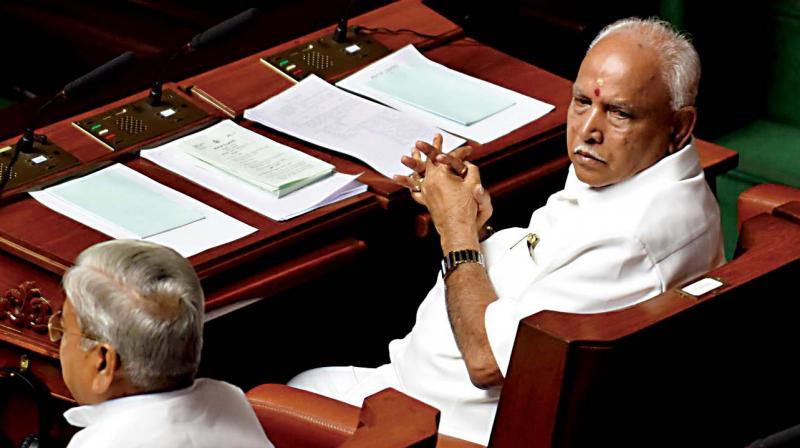SC order has created ambiguity: Ex-judge

Bengaluru: The interim order of the Supreme Court wherein it ruled that the 15 rebel MLAs cannot be compelled to attend the assembly session, has certainly created ambiguity and one has to seek clarification from the SC itself on the subject, said senior advocate and former Karnataka High Court judge Ravi B Naik.
He said that the Supreme Court is very clear on the point that they (15 rebel MLAs) cannot be compelled to attend the session. “In such a situation, the question of issuing a whip which is applicable does not arise at all. Even if the whip is violated, there cannot be disqualification. That 'point' needs to be clarified by the SC,” he said.
He went on to say that when Constitutional rights of political parties such as issuing a whip are taken away, seeking clarification on the order is the better way forward. "The fact remains that it has created ambiguity. If a clarification is sought, the SC may intervene,” he added.
However, former advocate general B.V. Acharya said that the Supreme Court has passed such an order after taking into account the fact that there will be a confidence motion on Thursday and hence everybody is bound by its order. “The issue of a whip is not a fundamental right and more importantly, MLAs have the right to resign too, and the Speaker has no right to delay his decision on the resignations. Hence, the SC has rightfully passed the order by balancing the rights of both parties. Knowing all the implications, the SC has unequivocally passed the order and I fail to understand what more clarity is needed in the matter," Mr Acharya said.
Further he said that though the Speaker proclaims that he is independent, his actions during Thursday's assembly session have helped a minority government to continue to remain in power. He also justified the action of the Governor in sending a message to the Speaker to complete the trust vote proceedings by the end of the day.
He wrapped up adding that the interim orders passed by the courts always restrain the party's right for a limited time and hence one cannot make it a big point. Someone saying that he was not made a party in a case is a mere technical point, as the SC court orders are binding on all authorities, he added.

